简体中文
繁體中文
English
Pусский
日本語
ภาษาไทย
Tiếng Việt
Bahasa Indonesia
Español
हिन्दी
Filippiiniläinen
Français
Deutsch
Português
Türkçe
한국어
العربية
EU Regulators Push for Efficient Transition to T+1 Settlement
Abstract:The AMF and Banque de France call for a coordinated EU transition to a T+1 settlement cycle for securities, emphasizing cooperation and a phased approach.
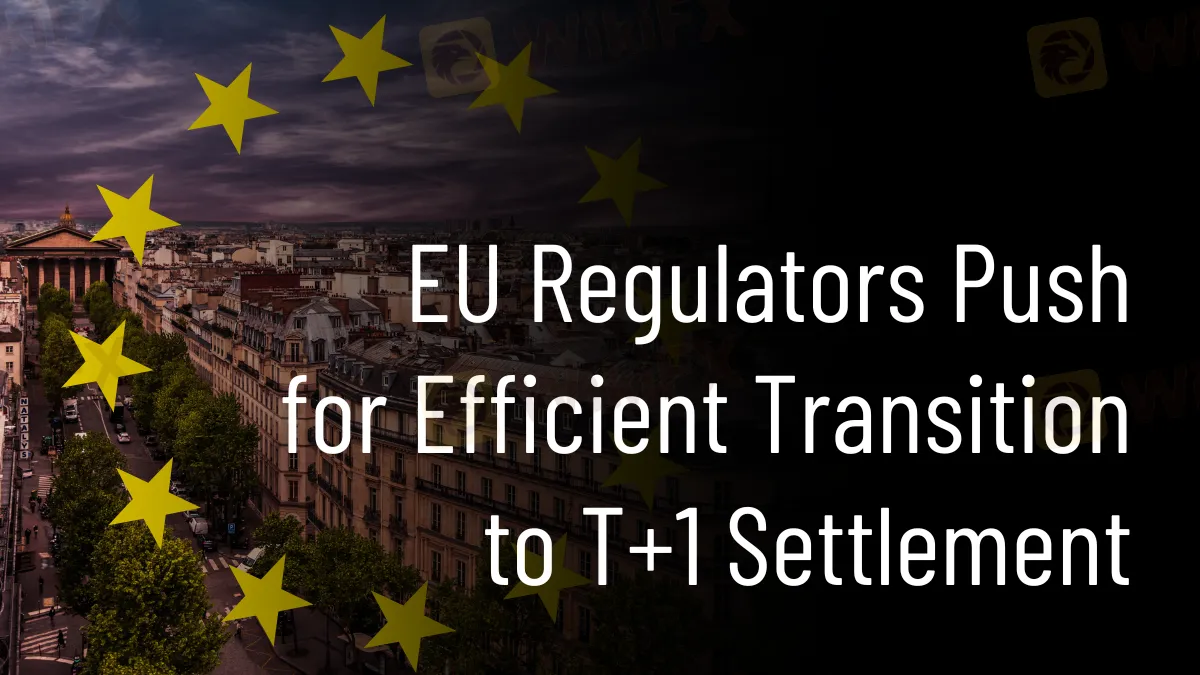
French financial authorities, the Autorité des Marchés Financiers (AMF) and the Banque de France support a well-coordinated and efficient transition to a T+1 settlement cycle for securities transactions within the European Union. This proposal follows the European Commission's approval of the T+1 concept, representing a significant step toward quicker resolution. However, owing to the specific characteristics of EU markets, this transformation poses significant problems that need a properly calibrated timescale.
The AMF and the Banque de France underline the significance of tight collaboration, notably with the United Kingdom and Switzerland, due to the EU's considerable interdependence with these economies. The appeal for cooperation emphasizes the need for a coordinated strategy to achieve a smooth transition, as the US and Canada successfully implemented the T+1 settlement earlier this year.

To address these problems, the AMF and the Banque de France suggest a sensible two-phased strategy. In the first phase, under the current T+2 settlement cycle, all securities transactions should be verified and allocated before the end of the trading day. This first phase demands critical industry operational and technological advancements, such as data interchange standards and manual process automation. By completing these modifications, the industry will be better prepared for the upcoming move to T+1.
The second step entails shortening the settlement period to T+1, subject to receiving sufficient deal confirmations on the trade date. This stepwise strategy guarantees that the changeover is manageable and that the essential infrastructure is in place before adopting the T+1 settlement cycle completely.
Furthermore, the proposed T+1 framework should contain regulatory components backed by regulatory and economic incentives to help with the transition. These approaches address roadblocks and encourage stakeholders to implement the new system seamlessly.
This comprehensive AMF and Banque de France policy seeks to guarantee a seamless and efficient transition to the T+1 settlement cycle. This program aims to improve market infrastructure and increase investor confidence by ensuring European financial markets' stability, efficiency, and competitiveness.
About the AMF
The Autorité des Marchés Financiers (AMF) is an independent governmental institution safeguarding financial assets. It guarantees that investors obtain enough information and monitors the orderly operation of markets.
About Banque de France
The Banque de France, a Eurosystem member, is an autonomous agency tasked with monetary policy, financial stability, and economic services. It contributes to eurozone monetary policy, regulates banks and insurance firms, and provides various economic services to businesses and consumers.

Disclaimer:
The views in this article only represent the author's personal views, and do not constitute investment advice on this platform. This platform does not guarantee the accuracy, completeness and timeliness of the information in the article, and will not be liable for any loss caused by the use of or reliance on the information in the article.
Read more
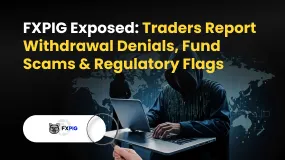
FXPIG Exposed: Traders Report Withdrawal Denials, Fund Scams & Regulatory Flags
Do you face massive losses due to astonishing spreads at FXPIG? Have you witnessed multiple trade executions by the Georgia-based forex broker even though you wanted to execute a single order? Has this piled on losses for you? Is the FXPIG withdrawal too slow? Maybe your trading issues resonate with some of your fellow traders. In this FXPIG review article, we have shared these issues so that you can introspect them thoroughly before deciding on the best forex trader.
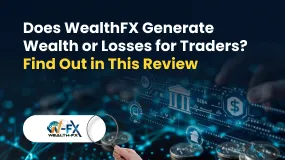
Does WealthFX Generate Wealth or Losses for Traders? Find Out in This Review
The name WealthFX sounds appealing for all those wishing for a rewarding forex journey. However, behind the aspiring name are multiple complaints against the Comoros-based forex broker. These trading complaints dampen the broker’s reputation in the forex community. In this WealthFX review article, we have shared some of these complaints here. Take a look!
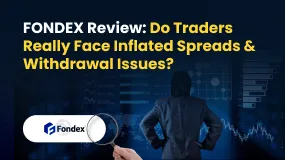
FONDEX Review: Do Traders Really Face Inflated Spreads & Withdrawal Issues?
Does FONDEX charge you spreads more than advertised to cause you trading losses? Does this situation exist even when opening a forex position? Do you witness customer support issues regarding deposits and withdrawals at FONDEX broker? Does the customer support official fail to explain to you the reason behind your fund loss? In this article, we have shared FONDEX trading complaints. Read on!
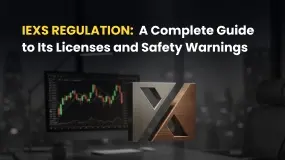
IEXS Regulation: A Complete Guide to Its Licenses and Safety Warnings
When choosing a broker, every trader's biggest concern is safety and trust: is it regulated? For IEXS, the answer isn't simply YES or NO. While the company says it's regulated by trusted authorities, looking closer shows a complicated and worrying situation with mixed evidence and serious risks. What they claim on the surface doesn't match up with official warnings, license problems, and many bad user experiences. This article gives you a detailed, fact-based look into IEXS regulations, breaking down their official licenses, what their trading platform is really like, and real stories from traders who have used it. Our goal is to give you the facts so you can make a smart decision about keeping your money safe.
WikiFX Broker
Latest News
150 Years Of Data Destroy Democrat Dogma On Tariffs: Fed Study Finds They Lower, Not Raise, Inflation
FIBO Group Ltd Review 2025: Find out whether FIBO Group Is Legit or Scam?
Is INGOT Brokers Safe or Scam? Critical 2025 Safety Review & Red Flags
Trillium Financial Broker Exposed: Top Reasons Why Traders are Losing Trust Here
Amillex Withdrawal Problems
IEXS Review 2025: A Complete Expert Analysis
IEXS Regulation: A Complete Guide to Its Licenses and Safety Warnings
Oil and gas giant Wood plc sold to Dubai engineering firm
FONDEX Review: Do Traders Really Face Inflated Spreads & Withdrawal Issues?
【WikiEXPO Global Expert Interviews】Ashish Kumar Singh: Building a Responsible and Interoperable Web3
Currency Calculator




